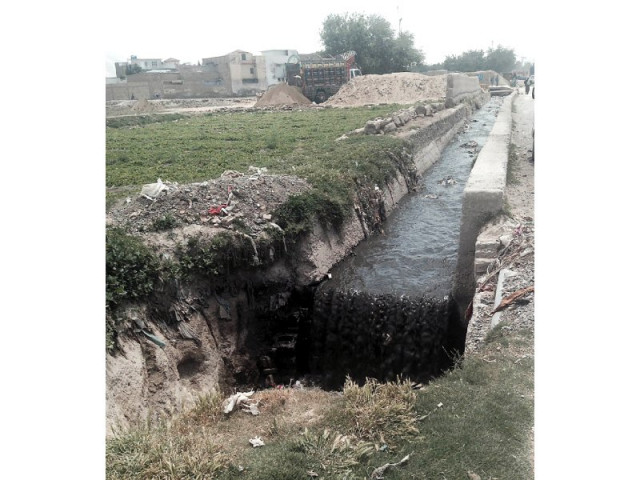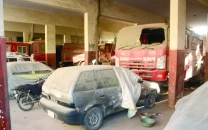Poor sewage system exacerbates the threat of perilous diseases in Hyderabad
Amid a sewage crisis, administering polio drops to children is futile, say health experts

PHOTO: EXPRESS
Residents had already been worried because of the ongoing outbreak of the drug-resistant (XDR) typhoid in the city, and now, to top it off, the presence of poliovirus has also been reportedly found in sewage water samples.
Parents resist polio immunisation teams in Hyderabad
Although it has been a long-standing problem, the situation worsened with the passage of time because the district officers of Hyderabad's Water and Sanitation Agency (WASA) had not done enough to address the city's mounting sewage crisis.
What's more, the provincial government - wherein the ruling party could not get its representatives elected - together with the divisional and district administrations have been indifferent to the situation, which has escalated over the years.
In fact, poor sanitation and sewage system are the main reasons typhoid, polio, as well as many other viral diseases have spread across the city.
To add fuel to the fire, district representatives often release unfounded numbers and quotes in relation to Hyderabad's cleanliness because of which the problem remains unresolved.
Although news media across the country have been unremittingly highlighting the looming threat of the XDR typhoid virus and how it spreads through the consumption of polluted water, the city administration has not taken any measures to improve its facilities in relation to the sewage and drainage system.
Polio virus found
The surveillance officer of the World Health Organisation (WHO) and the Health Department obtained water samples from the main Tulsidas Pumping Station in downtown Hyderabad and sent it to a laboratory in Islamabad, which confirmed the presence of poliovirus in the sample.
As a result, an emergency meeting was called by the Health Department, where serious concerns over the prevalence of the virus were expressed by officials and a consequent anti-polio drive was initiated. Moreover, complaints regarding the dismal sewage and cleanliness condition of the city were raised.
During the meeting, officers from the Hyderabad Municipal Corporation (HMC) and WASA provided verbal assurances related to the measures they have taken to clean the city. However, the ground realities are in stark contradiction with their tall claims and promises.
Sources said district health officers put forward their grievances and maintained that the concerned authorities do not extend any kind of support to tackle the situation.
Sources further said that the meeting also shed light on how citizens of Hyderabad had been dissatisfied with the negligence of the authorities when it came to cleanliness. According to them, merely administering polio drops to children without paying attention to the sewage and garbage crisis in the city is pointless.
Explaining the gravity of the situation, District Health Officer (DHO) Dr Nasreen Memon cited the city's poor cleanliness condition as the main cause of the emerging perilous diseases.
"The municipal officers do not cooperate. The epidemic and deadly diseases can be eradicated if timely arrangements are made in relation to the cleanliness of the city," she maintained.
Poliovirus was reported in Hyderabad's polluted water in 2016 and 2018 as well, and according to the Health Department, the strain of the virus currently found in Hyderabad is a new one. The one previously detected was found in a water sample obtained from Gadap Town in Karachi because of its proximity to Hyderabad.
Vaccine refusals
Also of note is the fact that over 2,000 parents refused to allow their children to be vaccinated during the January anti-polio drive. At least 5,882 children were missed in total during the four-day drive.
Although the district administration called an emergency meeting to discuss the issue, no real effort was made in the aftermath to convince or force parents to permit the administration of polio vaccine drops to their children. However, three to four people from the city area were taken into custody for questioning the motives of the polio teams.



















COMMENTS
Comments are moderated and generally will be posted if they are on-topic and not abusive.
For more information, please see our Comments FAQ